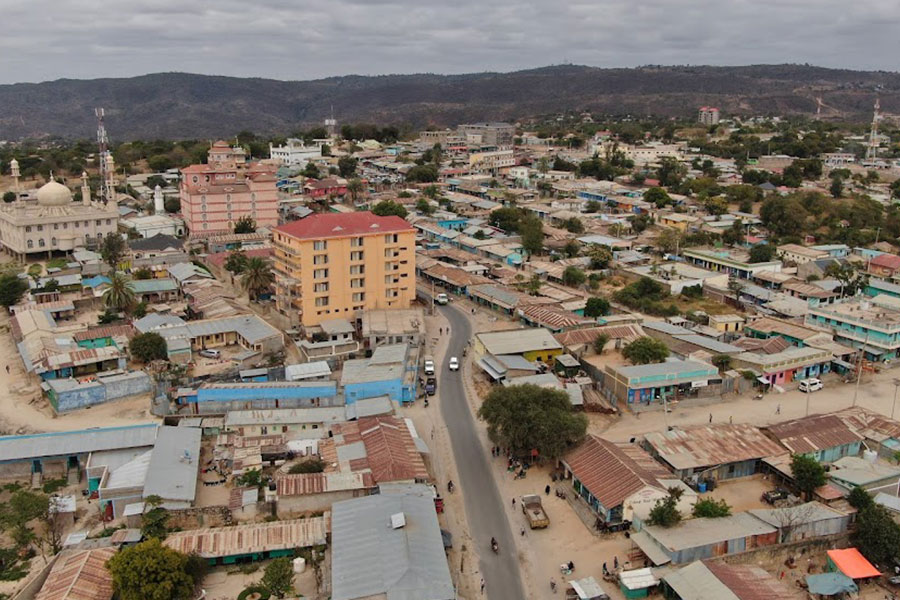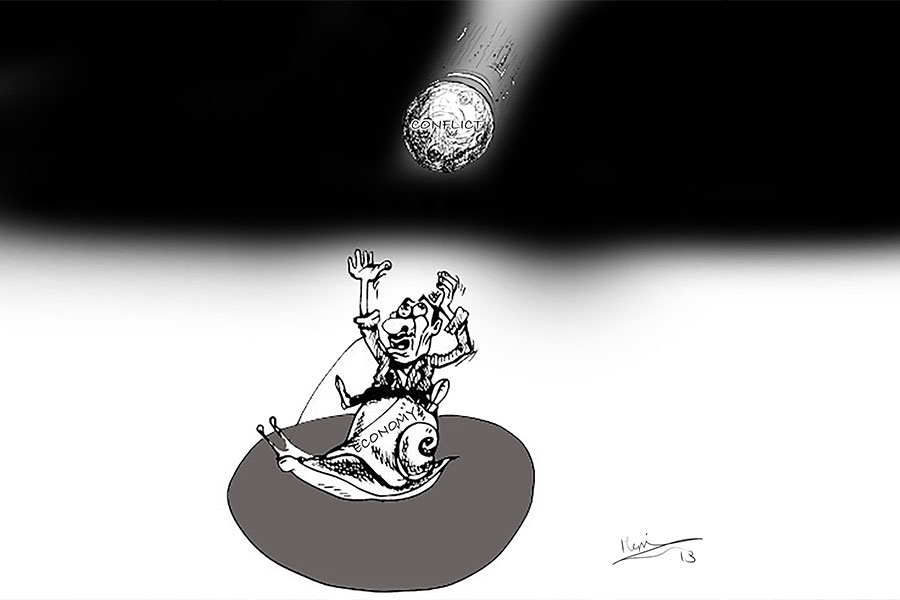
Nov 29 , 2020
By Christian Tesfaye
Once in a while, Ethiopians are flung into a moment where socio-political circumstances are upended. It is as if a new spirit descends on the land, and all we have come to understand about our condition is suddenly upended.
It is not just Ethiopians. It has been just about three decades since the fall of the Soviet Union, around the time Francis Fukuyama boldly declared the end of humankind’s “ideological evolution.” For the uninitiated, the certainty of a lasting liberal utopia was rudely interrupted in 2016, when the custodians of this tradition, the United States and Britain, themselves rejected liberalism.
For the acutely observant, the writing on the wall was evident in the same decade that Fukuyama penned “The End of History and the Last Man.” With an equal measure of certainty, Huntington argued that this could not be further from the truth. If the major fault lines of the Cold War were ideologies, the near future would be demarcated along the greatest expressions of religio-cultural groupings: “Civilisations.”
With populism on the rise and pushback against migration to the Global North, the growing assertiveness of nationalisms and religious radicalism means that we are unlucky. We are not in Fukuyama’s liberal utopia. We are caught in Huntington’s purgatory of the “clash of civilisations.” If we slip a little too far, we will find ourselves in the Nietzschean hell of nihilism.
Fortunately, there are many, on the right and on the left, that are trying to deliver us to a more certain world. Unfortunately, their ideas are often conceited, impractical, exclusionary or downright destructive.
On the right, they think our predicaments could be addressed if we live “freely,” without the imposition of taxes or government control. On the left, it must be a strong centralised government that thrusts among citizens strict political correctness and redistributes wealth at once.
Not every political difference is formed along such fault lines, but the gist is there. More worrying is that these groups take themselves seriously enough, as all movements do in their prime, that they believe that violence is a legitimate way of bringing about a political end.
In the same instance, the centre is on retreat. It is no longer fashionable to attempt to find a middle ground. It shows uncertainty, an unwillingness to move quickly and vanquish the enemy at once. The centre is what both the left and the right – here in Ethiopia as elsewhere – agree is bad for business. It is the side that advocates stability to unpredictability, political evolution to revolution and socioeconomic improvements to political overhaul.
For the left, the centre is a vestige of the patriarchy, justifying its continued existence. For the right, it is a weak link likely to be used as an instrument of a power grab by the radical left. This essentially was the argument by the two extremes of American politics against President-elect Joe Biden.
It is also true of the view attached to the centre in Ethiopia. For the "federalist" forces, those rejecting revolutions are stuck up on the old forces of feudalism, at least sympathisers of the status quo. For the "Ethiopianist" legions, a person advocating incremental change must be disloyal to the founders and the state, a suspect of indoctrination by the Left’s unceasing attack on tradition.
There is no winning here, although the opposite seems to be evident. Both tradition and change are what sustain human existence. Both are necessary to function as a society.
Tradition is what we know and how we do things. There is accumulated knowledge there. It cannot be gotten rid of at a moment’s notice when we know society is conditioned to it. The change, when it comes, should be grassroots and very well understood. It is only ironic that the left - much enamoured by the post-modernist view that nearly every sort of knowledge is a byproduct of social and historical realities - would be the one that believes something that makes up our very reality can be torn down and rebuilt rapidly.
Change too is crucial, if for no other reason than the fact that the physical world we live in is changing – climate change, technological advancement, demographic changes and depletion of resources. We are not in Kansas anymore. Here the call of the likes of Greta Thunberg, Swedish activist superstar, to take immediate action against climate change is duly admirable. The science backs her claims; the change can be implemented without creating many negative externalities and, crucially, she is not calling for a violent overthrow of governments that do not toe her politics. We can take some lessons from her activism.
The centre has become unpopular precisely because it refuses to accept the status quo but at the same time cautions against demolishing structures without a clear plan to replace them. This has become a political sin today to the unfortunate circumstance of our being.
PUBLISHED ON
Nov 29,2020 [ VOL
21 , NO
1074]


Fortune News | Apr 20,2019

Films Review | Feb 01,2020

Radar | Mar 20,2021

Fortune News | Oct 16,2021

Fortune News | May 07,2022

Life Matters | Feb 19,2022

Editorial | Nov 21,2020

Fortune News | Oct 26,2019

Fortune News | Jun 17,2023

Sunday with Eden | Apr 30,2021

My Opinion | 131460 Views | Aug 14,2021

My Opinion | 127812 Views | Aug 21,2021

My Opinion | 125791 Views | Sep 10,2021

My Opinion | 123426 Views | Aug 07,2021

Dec 22 , 2024 . By TIZITA SHEWAFERAW
Charged with transforming colossal state-owned enterprises into modern and competitiv...

Aug 18 , 2024 . By AKSAH ITALO
Although predictable Yonas Zerihun's job in the ride-hailing service is not immune to...

Jul 28 , 2024 . By TIZITA SHEWAFERAW
Unhabitual, perhaps too many, Samuel Gebreyohannes, 38, used to occasionally enjoy a couple of beers at breakfast. However, he recently swit...

Jul 13 , 2024 . By AKSAH ITALO
Investors who rely on tractors, trucks, and field vehicles for commuting, transporting commodities, and f...

Jun 28 , 2025
Meseret Damtie, the assertive auditor general, has never been shy about naming names...

Jun 21 , 2025
A well-worn adage says, “Budget is not destiny, but it is direction.” Examining t...

Jun 14 , 2025
Yet again, the Horn of Africa is bracing for trouble. A region already frayed by wars...

Jun 7 , 2025
Few promises shine brighter in Addis Abeba than the pledge of a roof for every family...

Jun 29 , 2025
Addis Abeba's first rains have coincided with a sweeping rise in private school tuition, prompting the city's education...

Jun 29 , 2025 . By BEZAWIT HULUAGER
Central Bank Governor Mamo Mihretu claimed a bold reconfiguration of monetary policy...

Jun 29 , 2025 . By BEZAWIT HULUAGER
The federal government is betting on a sweeping overhaul of the driver licensing regi...

Jun 29 , 2025 . By NAHOM AYELE
Gadaa Bank has listed 1.2 million shares on the Ethiopian Securities Exchange (ESX),...